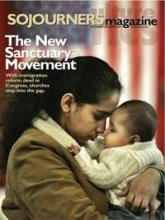When we send our children out into the world of work, we assume that if they can get their foot in the door and get a job, then they can move up the ladder and take care of themselves and their families. The job may not be perfect, but they will be able to make ends meet and have time to be both good workers and good parents.
The reality, however, is that millions of jobs in the United States are not these kinds of jobs. Nationwide, about one-third of jobs are low wage, paying less than two-thirds of the male median wage, and, more often than not, don't come with health insurance, paid time off, or retirement plans. Many workers in low-wage jobs do not even know what their work schedule is for next week, let alone what they'll do if they need a sick day.
Low-wage workers and their families are often excluded from what most of us would consider normal activities, such as taking a paid sick day if their child is sick. This is a moral outrage. In a nation where the majority of children do not have a stay-at-home parent, how should families cope when a child gets the flu? Leave the child at daycare and get all the other children sick? Risk their jobs by missing a day of work? Every day in the world's richest nation, parents are forced to choose between being a good parent and being at their job.
One of the key characteristics of low-wage jobs is that they aren't subject to the same kinds of basic labor standards as other jobs. High-wage jobs often provide the kinds of benefits that workers with families need, such as the flexibility to take an hour to take the children to the dentist and then make it up later, or paid time off for maternity and paternity leave. But those in low-wage jobs, who are also in need of family-friendly policies, simply don't get these kinds of perks.
PUBLIC BENEFITS, such as Medicaid and child care subsidies, are supposed to fill the gap for workers who do not get on-the-job benefits.
Read the Full Article
